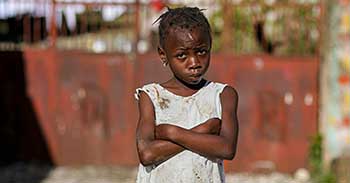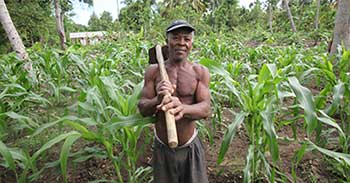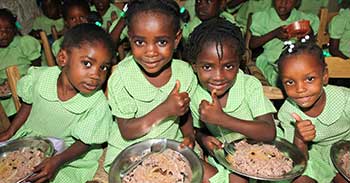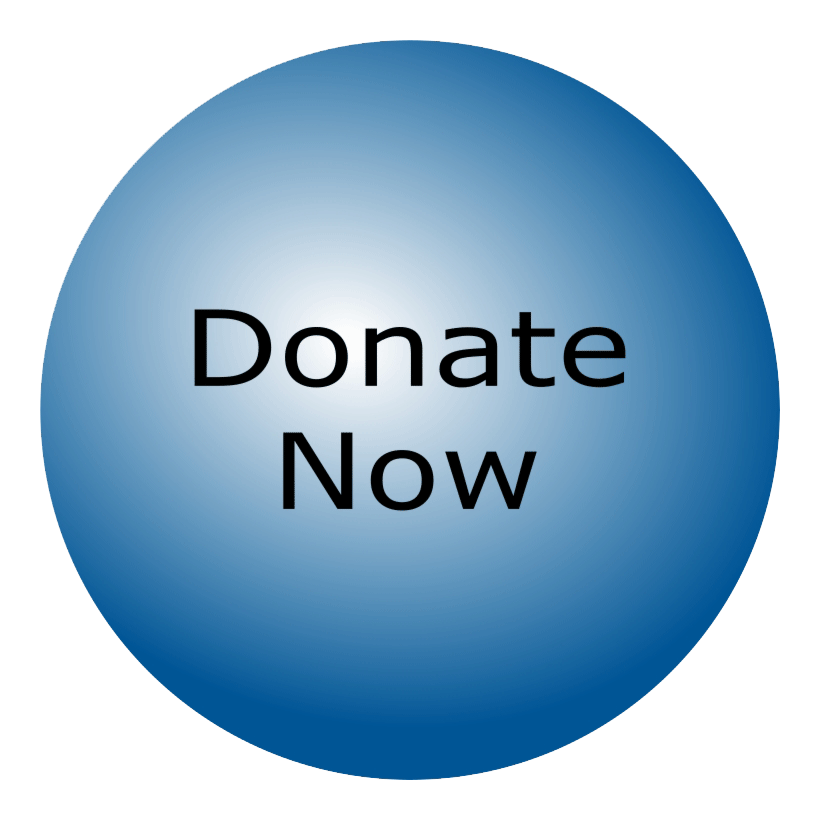With a big smile, she meets all, whether it be high-ranking politicians or a child with special needs. There is a smile that comes from the heart, a smile that makes you both happy and warm inside. For Liana Velka in Riga there are no impossible problems or obstacles. EVERYTHING can be arranged, with the right attitude, some good will and a big smile.
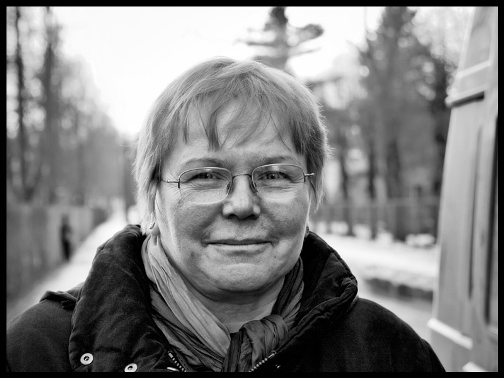
We are in Latvia, and with only a few days left until Christmas we are here to be involved in the distribution of nearly 5000 Christmas packages. I take a few minutes to rest now and then in the bus when going from one family to another. For Liana it is very busy and the brief moments on the bus is almost the only rest she gets. Yet she's sitting there with a big smile on her face. I have difficulty understanding how she, in the middle of the stress, can convey such a calm and warmth. She really shines.
Faith must have impact, or Faith must have consequences
Even if she now feels natural in her role as head of Star of Hope and Heart to Heart; two separate organizations and their work in Latvia, she glided into the business a bit on a banana skin. It was not something she had planned or intended. It began with a request from a teacher at her daughter Elina's school. She wondered if Liana would consider helping to organize a trip to Sweden for seven orphans. Although she really wanted to say no, the answer was yes. The year was 1991, and Latvia had just regained its freedom after many years of being part of the Soviet Union. Everything felt different. People dared to express their views. They got to travel freely. Now they would begin to rebuild their country again. With the increased freedom, even newspapers dared to challenge their readers to think differently. Such was the Journal of the Christian magazine" Pakapieni "Go". It pointed out that in the Christian faith words are not enough, there must be action as well. There was an article in the magazine telling of the orphanage children who needed to go on summer vacation to Sweden. Heart to Heart in Sweden and in Latvia organized the event. Liana was the person arranging passports, visas and all the papers needed for the trip. Without knowing a word of Swedish or English, she also accompanied the children to Sweden. A rather embarrassed companion, she taught herself with the help of pictograms, a dictionary and her hands. It became three very exciting weeks, not the least for Liana who had never visited a Western country in the past.
Work among the "uneducable" takes shape.
After that first contact with Sweden work rolled on pretty quickly. Star of Hope visited Latvia the same year with a plan in mind to start a work among children with special needs. They contacted the newspaper "Pakapiena" to find out who could help them in Latvia. December 13, 1991 was the day Star of Hope first visited Latvia and Liana was their host. When I asked how Liana reacted to learn that it was primarily children with special needs Star of Hope wanted to work with, she exclaims, "It felt incredibly good. I knew how terribly the children who were physically challenged had it, especially those who lived in an orphanage, they had no life." It was obvious that children with severe disabilities were uneducable, they had no value. The institutions were primarily a repository. There were no activities for them and it was cold, especially in the middle of winter.
When Star of Hope began its work a few months later in Latvia, the able Liana was an obvious employee. She resigned from her job as a German teacher and with her husband, Ivar, she formed a Latvian organization that functioned as an arm for Star of Hope in Latvia. In the beginning the work was to take care of all the aid shipments which included distributing them to the various orphanages and institutions. Lianas husband worked as a volunteer at first in the evenings and weekends. But the need increased for a strong man who could drive a truck, especially when they started to renovate the institutions. So soon Ivars worked fulltime.
Knowledge - a way to change
The primary objective of the work has always been to change attitudes towards children and adults with special needs. In the old Soviet Republic people with disabilities were not seen as humans. Changing the attitude that people with special needs have the same rights and value as everyone else was and is still a challenge. Initially it meant to ensure that the disabled had a decent living but after a few years we began also to train staff in the institutions and orphanages. Knowledge of working with the disabled - leaving aside the purely medical aspect - was not known in Latvia. At the beginning we arranged seminars with experts from Sweden; pediatricians, occupational therapists, physiotherapists, psychologists, speech therapists and others. Soon there were also parents of children with special needs participating at the seminars, especially parents who had chosen to keep their children with special needs at home but also many of those who had left their children to the orphanage came and dared now take their children home. A whole new world started to opened.
Parents Associations
With an increasing number of children with special needs at home, there was a need for special pre-schools and day centers. Children and young people also needed help to get to school and the day centers. But still there were many parents who complained, and we realized that our work must involve the whole family. To have a family member with special needs makes it in a sense that the whole family is disabled, especially in our society that still sees the disabled as less worthy. So we started working with parents' associations, small groups ( mostly mothers) who gather twice a month. Sometimes it is to get training, but usually it is "just" to meet with other adults, get to talk to each other, exchange experiences and learn more about their rights and their children. Every summer we also organize several camps for both children and mothers. We will have such a camp this January. We received money from the EU. It was actually supposed to be a summer camp, but the promised money was late so now we have a summer camp in the middle of winter. Liana laughs when she thinks about how silly it must sound. "It's incredibly fun to work with these mothers, although there is a lot of work. They need knowledge about what help is available for their children and that they cannot just sit and wait for a miracle to happen. We must always encourage them to dare to let go, the kids need to come home, they need to come to school and learn to stand on their own. Many mothers have their children with special needs at home, no matter what kind of disability they have, they can be even up to 10-11 years old, before they first get to school ...". "The best thing is to see these moms meet. When they come to the group the first time they cannot talk about anything other than their children. They, themselves, have no needs. After being here for a while, they begin instead to talk to each other. It's like they dare to live themselves. They have become so beautiful, straight back, proud and with a lot of will. We are now setting up many of the mothers as responsible for various EU projects; they must take responsibility for project applications, planning and implementation. "
More knowledge
As part of the education they also produce books. In Latvia, there is almost no material about people with special needs written in Latvian. With support from, among others Sida, books by Tomas Sjödin and several other Swedish writers have been translated. We are currently working with Berit Lagerheim author of "To Develop with disabilities." But many more books are needed. Knowledge is very important and universities in Latvia call constantly and ask for our books. Today, "disability care" is part of the university programs and newly trained special education teachers are working in our schools and day centers. It is really only now that we begin to see a real change in "disability politics" in the country.
Power from above
"Where do you get your energy from?" I interject. Liana has just hung up after talking with one of the many mothers with whom she has contact. Her phone rings several times during our conversation. There are organizations and churches who are there to get their share of the Christmas packages, special schools who would like to invite her and Ivars, for their Christmas festivities but usually it is mothers who need someone to talk to for a while. I realize more and more how much work is going on behind Liana's apparently quite calm facade. Liana looks upwards. "The energy I get from above, it is the only answer I can give. "
Those who look to Him are radiant; their faces are never covered with shame. Psalm 34:5
"We have a dream, or actually it is probably mostly me," says Liana with a laugh," Ivars' dreaming about something else. I would like to open a short term accommodation, where I can work more directly with the children, home where I can receive four to five children at a time and give their families an opportunity to rest for a few days. There is nothing existing in Latvia like that.
We want in our work to show how to work correctly with the children. Today, for example, there is not even a place where mothers can come and talk to a social worker or counselor. I would like them to be able to do so in my short term accommodation. They cannot just sit and talk about their personal problems and needs in a café.
The dream was a doll with real hair
"There we have the prison!" Liana suddenly exclaims when we go past a large dirty white building surrounded by a high concrete wall. "It is always full. In Latvia, it is often easier to commit crimes and go to prison than to try to live an honest life outside the walls. It is difficult to find work and wages are so low that it is barely enough for even the most necessary. Sometimes I wonder if the poor have it harder today than in 1991. Prices have risen to double in just a few years. Today you can buy anything if you have money, before we had money but there was almost nothing to buy. Can you imagine that I, when I was a child, dreamed of an East German doll. For me a doll from East Germany was the best you could imagine. You could even comb the dolls hair. Our Soviet-made dolls only had hair that was pasted on. Back then even apartments were hard to come by. You had to have an employer who had access to apartments and work hard and well. When we got married, Ivar and I had to live with my parents. Our first apartment we had because Ivars began working as a technician at a collective farm in the outskirts of Riga. A car was also difficult to buy. The few cars that were around were reserved for bigwigs in the Communist Party, or as rewards to those who have worked well. All workplaces had special queue for "luxury items" such as cars. Only those who worked well qualified to get into the queue. But Ivar's managed to get hold of a car in Moscow, a Lada. It was 1983 and we were so proud of our little car, it gave us a great freedom to travel, even if only in the Soviet Union, but still."
Change takes time
"You got a little paranoid; just a few years ago I cleared away several boxes of soap that I hoarded. Soap you could only buy with coupons and even if we did not need our entire ration, I dared not to take out the entire ration. I dared not give it away for fear that one day I would run out. If you did go to the doctor you were more or less forced to bribe to get an examination. I never went to the doctor without having a flower or a box of chocolates with me. I believe that corruption today has a lot to do with the system we had before. We were so used to bribing our way. It makes it even harder for those who are poor, those who have fallen out of the system. They have no chance to get up again. Do not misunderstand me, everything is better today. I would definitely not go back to Soviet times, but we still have a lot to work on. It's just 20 years ago, we were freed and to change people deep down takes time."
Ivars has just stopped the car outside something that to me looks like a dilapidated shed. Liana looks at her notes. We are going to give out two big family Christmas packages. With a big smile she grabs one of the packages and steps into the little house.
"You know, this is the best I know!
Text: Marita Good, photo: Mikael Good. All rights reserved.To see more photos check out Mikael's blog.
The story was previously published in the Swedish Christian Women's Magazine Junia.

